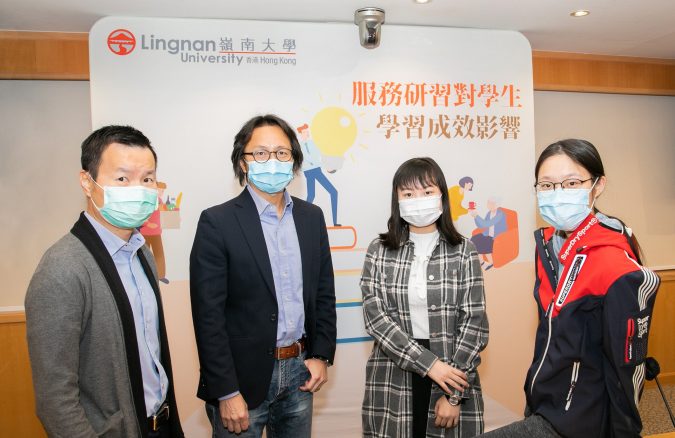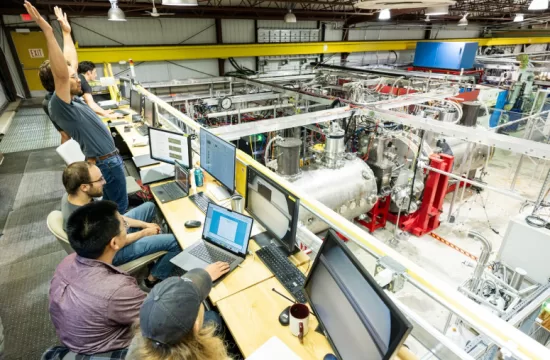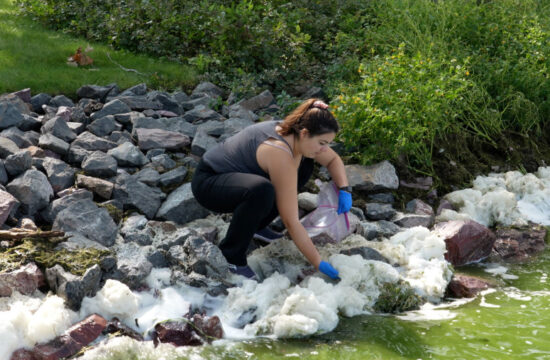
A Lingnan University (LU) survey assessing how undergraduate students perceive their development from service-learning programmes showed that the respondents’ overall personal qualities and skills were significantly strengthened.
In particular, “knowledge application” and “personal and professional skills” rose by 10 per cent. The research team noted that, during the COVID-19 pandemic, 70 per cent of respondents had to adopt the new mode of “service-learning from home”.
The survey was conducted by the LU Office of Service-Learning between September 2019 and June 2020 with a self-administered questionnaire. 609 valid responses were collected from LU undergraduates in various faculties and years of study following 60 service-learning programmes. The respondents were invited to complete a “Service-Learning Outcomes Measurement Scale” (S-LOMS) before and after their projects.
The S-LOMS was developed by the LU research team in conjunction with the Hong Kong Polytechnic University, the Hong Kong Baptist University and the Education University of Hong Kong, and consists of 56 self-descriptive items in four comprehensive categories — “knowledge application”, “personal and professional skills”, “civic orientation and engagement” and “self-awareness” — covering 11 personal qualities and skills, to which participants respond on a 10-point scale.
The 11 qualities and skills are knowledge application, creative problem-solving skills, relationship and team skills, self-reflection skills, critical thinking skills, community commitment and understanding, caring and respect, a sense of social responsibility, self-efficacy, self-understanding, and commitment to self-improvement.
Survey results show that overall learning abilities of the students questioned were significantly strengthened after the completion of the projects, with percentages ranging from 7 to 11 per cent. In particular, “knowledge application” (10.6%) and “personal and professional skills” (10.3%) increased by over 10 per cent, which was the largest change in the four categories.
There was also exponential growth in personal qualities and skills, including “relationship and team skills” (11.1%), “self-efficacy” (10.5%), “creative problem-solving skills” (10.2%), and “critical thinking skills” (10.1%), which were over 10 per cent higher in the second survey.
Dr Albert Ko, Director of LU’s Office of Service-Learning, said the findings are encouraging and reflect the pivotal role of service-learning in stimulating students’ minds and personal growth.
He said service-learning enables them to put theories into practice and deliver meaningful services to the community. Students may also attach research elements to their service-learning projects, which benefit stakeholders in all sectors and further consolidate students’ learning powers. In addition, service-learning promotes knowledge transfer and social innovation in university scholars and students.
Dr Ko also said that 70 per cent of the students surveyed did “service-learning from home” due to the COVID-19 pandemic, and the university received positive responses from participants, who commented that although service-learning from home means there is no face-to-face interaction, it brings greater flexibility of time. Dr Ko believes that this new mode will become a trend, but more studies are needed to measure its efficiency.








